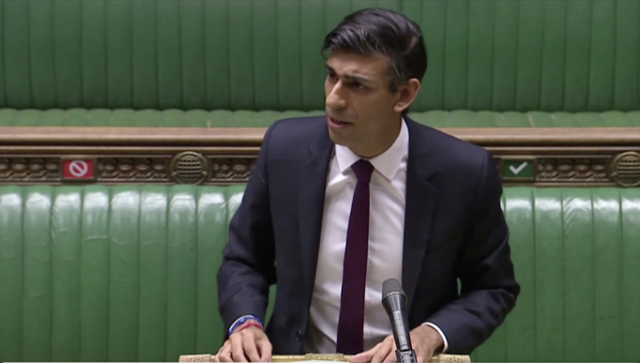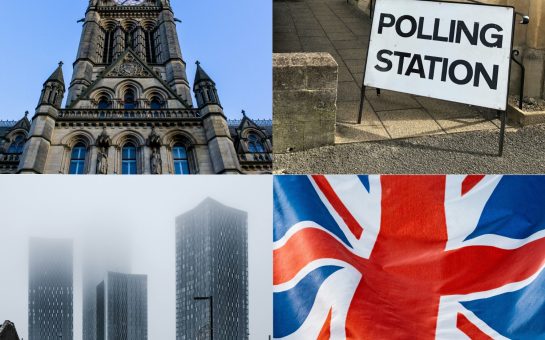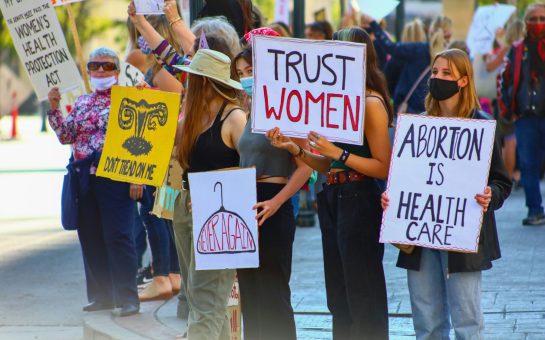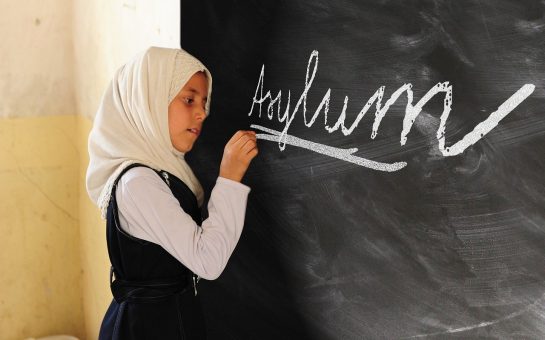The Conservative Party is predicted to lose almost 50% of its vote share in Greater Manchester.
The prediction made by the pollster Electoral Calculus on June 20 suggests that the Conservatives will lose all seven parliamentary seats they currently hold in the area, and receive their lowest vote count here in over 40 years.
A resurgent Labour Party has been predicted to increase its vote share by 15% and gain four of the seven available seats.
The three which are predicted to not be under Labour control are Hazel Grove and Cheadle – both predicted to swing to the Liberal Democrats – and George Galloway’s Workers Party of Britain retaining Rochdale.

Despite Manchester being a key brick in the red wall, the success of Boris Johnson’s campaigning meant the Conservatives won nine seats, their best result since 1992.
But defections by Christian Wakeford in Bury South and Mark Logan in Bolton South West have left them technically defending seven seats on 4 July.
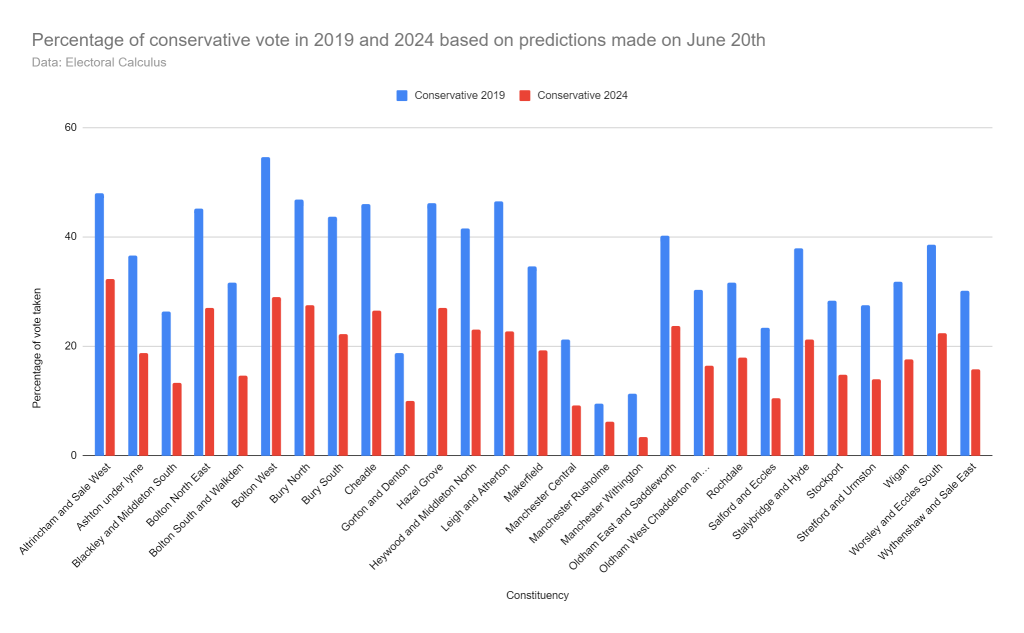
Traditional Tory seats like Altrincham and Sale West, held since 1945, are predicted to see significant losses, with a nearly one-third drop in votes.
Frustration with the impacts of Brexit, fiscal recklessness in Liz Truss’s mini-budget and the cost-of-living crisis have all been cited as key reasons for the Tories drop in the polling.
But for the upcoming election Mancunians will be keen to focus on issues of health, poverty and affordable housing, with Manchester City Council outlining these as their key challenges for 2025.
The Conservatives have promised to increase spending on health, recruiting 92,000 more nurses and 28,000 more doctors, whilst also offering a further 2p cut to National Insurance.
Alternatively the Labour manifesto promises 40,000 more appointments every week and promised not to increase national insurance, income tax or VAT.
One policy that Labour has proposed which may appeal to people in the region is the plan for decentralised power from Westminster and more autonomy for the nation’s regional mayors.
Keir Starmer has pledged more autonomy over issues such as transport, adult education, housing and planning.
Polling from Savanta and the Local Government Chronicle found that 48% of people agreed that greater devolution from central to local government would be a good thing, compared with just 15% who disagreed.
Keir Starmer has pledged more autonomy over issues such as transport, adult education, housing and planning.
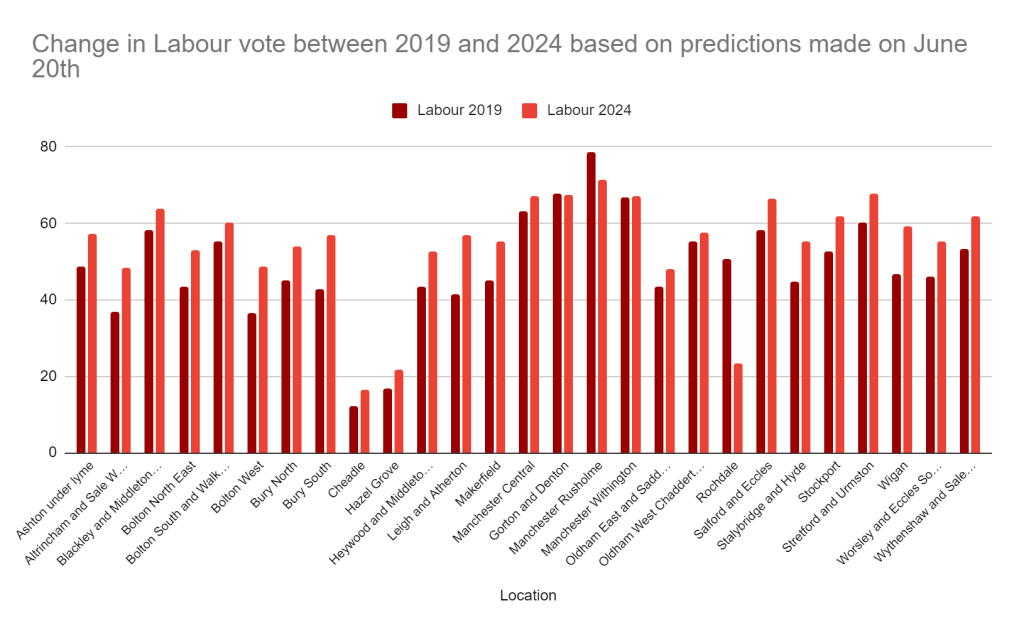
If these predictions come to fruition on election night it would mean Labour have their highest number of seats in Greater Manchester since Tony Blair’s New Labour in 1997.
Whilst the first past the post system demonstrates Labour dominance, the increase in vote share predicts Nigel Farage’s Reform party to gain almost 250% more votes than in 2019.
After the release of Farage’s manifesto, predictions have suggested their party will gather big support in a number of Greater Manchester boroughs.
In Heywood and Middleton North Reform are expected to collect 18.4% of the vote share – an increase of 135.9% on 2019 results.
Whereas in Bolton West, where Reform collected a negligible amount of votes in 2019, 0.8%, will expect to grow to 13.4% in 2024.
Feature image: HM Treasury and The Rt Hon Rishi Sunak via WikiCommons
